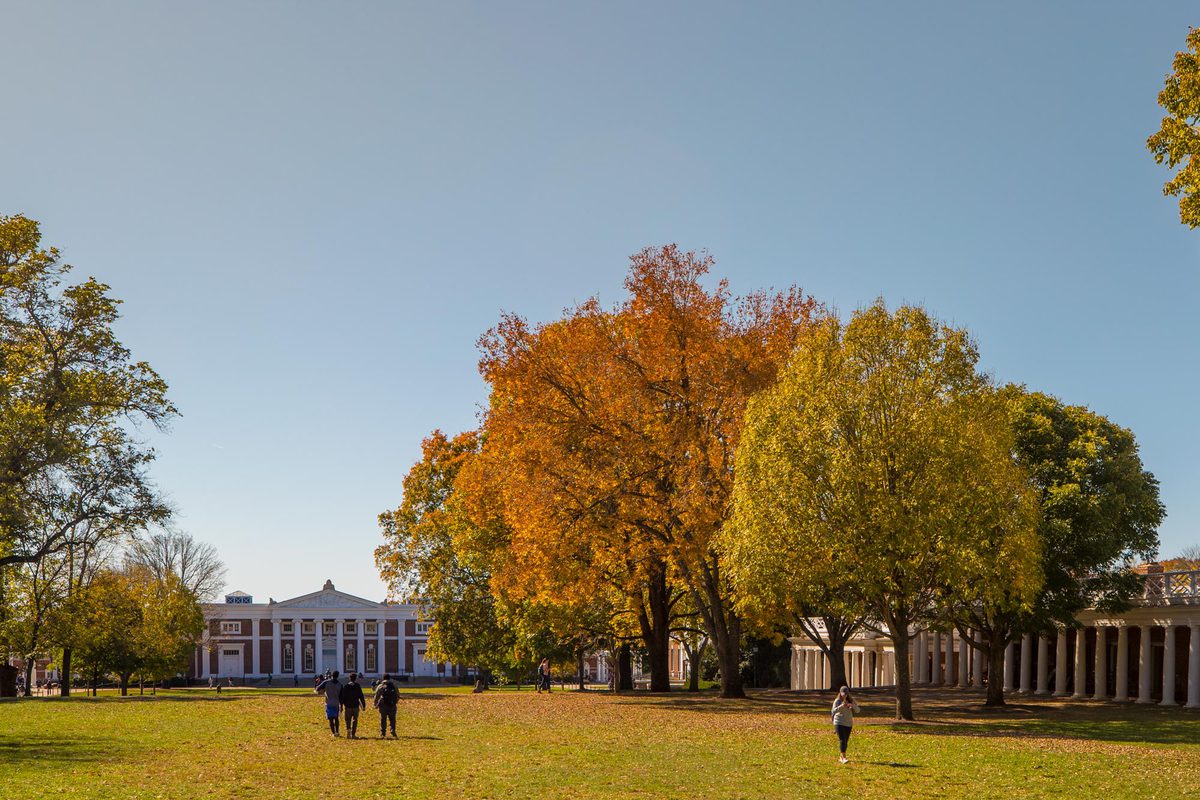An educational workshop and public comment period on the University of Virginia’s 2020-21 tuition and fees proposal will be held on Friday, Nov. 8 from 9:30 a.m. to 10:45 a.m. in the South Meeting Room of Newcomb Hall.
The annual tuition notice was posted Tuesday and the Board of Visitors is scheduled to consider tuition and fees on Dec. 6 at 8 a.m. in the Board Room of the Rotunda.
Friday’s public forum will begin with an overview of the posted tuition and fees, followed by public comment. During the public comment period:
- Individuals may speak on a first-come, first-served basis. Each speaker will be asked to sign in and specify their affiliation with the University and/or the community. Each speaker may speak for a maximum of three minutes.
- Each speaker will be requested to limit their comments to only proposed tuition and fees and their intended uses. Speakers wishing to have their comments entered in the public record must provide their name and a copy of their comments to the secretary to the Board of Visitors.
- Written comments will also be accepted from the date that the public notice is issued and may be submitted via email to respond_uva_tuition@virginia.edu or by hard copy at the workshop session.
Based on an assumption that the state appropriation will be at approximately the same level as included in the 2018-2020 Appropriation Act, a tuition increase of between 3% and 4% is proposed for students in the College of Arts & Sciences, Curry School of Education and Human Development, School of Architecture, McIntire School of Commerce, and School of Continuing and Professional Studies and all returning students in the School of Engineering and Applied Sciences, Batten School of Leadership and Public Policy, and School of Nursing.
If the state appropriation is substantially different from the level assumed, adjustments to the tuition rates may be proposed in the spring of 2020.
Tuition increases are only implemented after the board has considered other revenue sources and looked for opportunities to increase efficiency. Revenue generated from tuition and fee increases, coupled with cost savings, philanthropy, endowment earnings and other revenue sources, goes toward faculty and staff compensation, investments in academic programs, expanded student health services and facilities, operations and maintenance of facilities and other commonwealth and University priorities.
Last year, the Board of Visitors maintained the in-state tuition rate for the current academic year, which was made possible by the Virginia General Assembly’s allocation of additional funds to support higher education in 2019-20.
The 2019 In-State Undergraduate Tuition Moderation Fund designated $52.5 million in state funding for public universities that voluntarily held tuition and mandatory educational and general fee charges for in-state undergraduate students to existing levels. As a result, UVA received an additional $5.52 million in state funding.
UVA will continue its commitment to provide financial aid that meets 100% of the demonstrated financial need of all undergraduate students, while also offering admission to students without any consideration of a family’s financial situation. It is one of only two public universities nationwide to do so.
Last year, UVA provided approximately $143 million in need-based financial aid to undergraduate students through its financial aid program, Access UVA. Fifty-three percent of undergraduate students received some level of financial assistance, and 66% of UVA undergraduate students graduate with no debt.
President Jim Ryan last year committed to fully covering tuition and fees for students from Virginia families who earn less than $80,000 per year and have typical assets. UVA also covers tuition, fees and room and board for students from Virginia families earning less than $30,000 per year with typical assets.
Loans are part of some financial aid packages, but will remain capped at $1,000 per year for low-income Virginians and $4,500 per year for other in-state students with demonstrated need.
These efforts have enabled exceptional students from Virginia and beyond to come to UVA regardless of their financial situation, supporting a student body with both cultural and socioeconomic diversity.
UVA also continues to be rated as one of the best values in higher education by both Kiplinger and Money magazine.
Media Contact
Article Information
November 5, 2019
/content/board-schedules-workshop-and-public-comment-session-tuition-proposal

